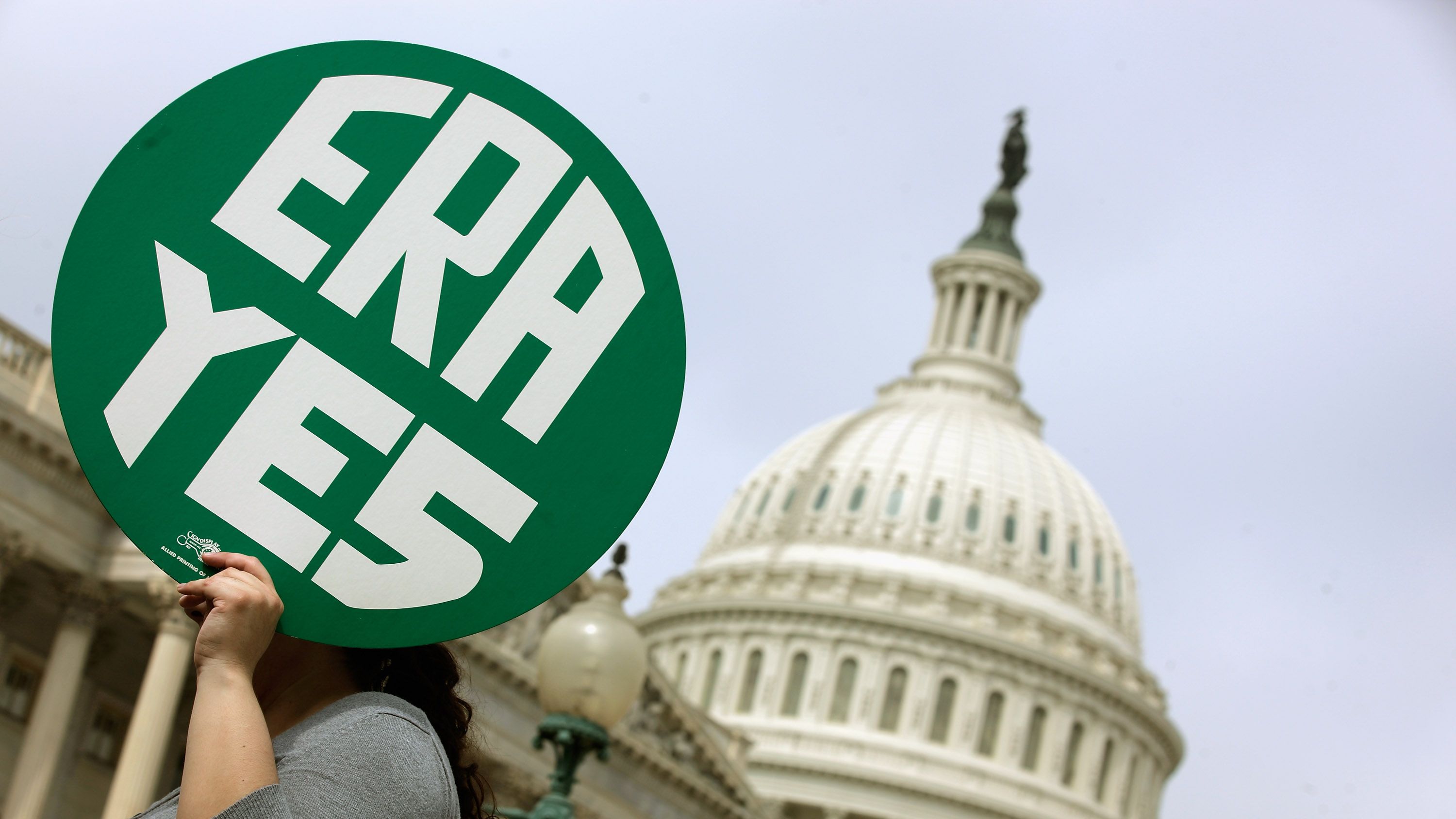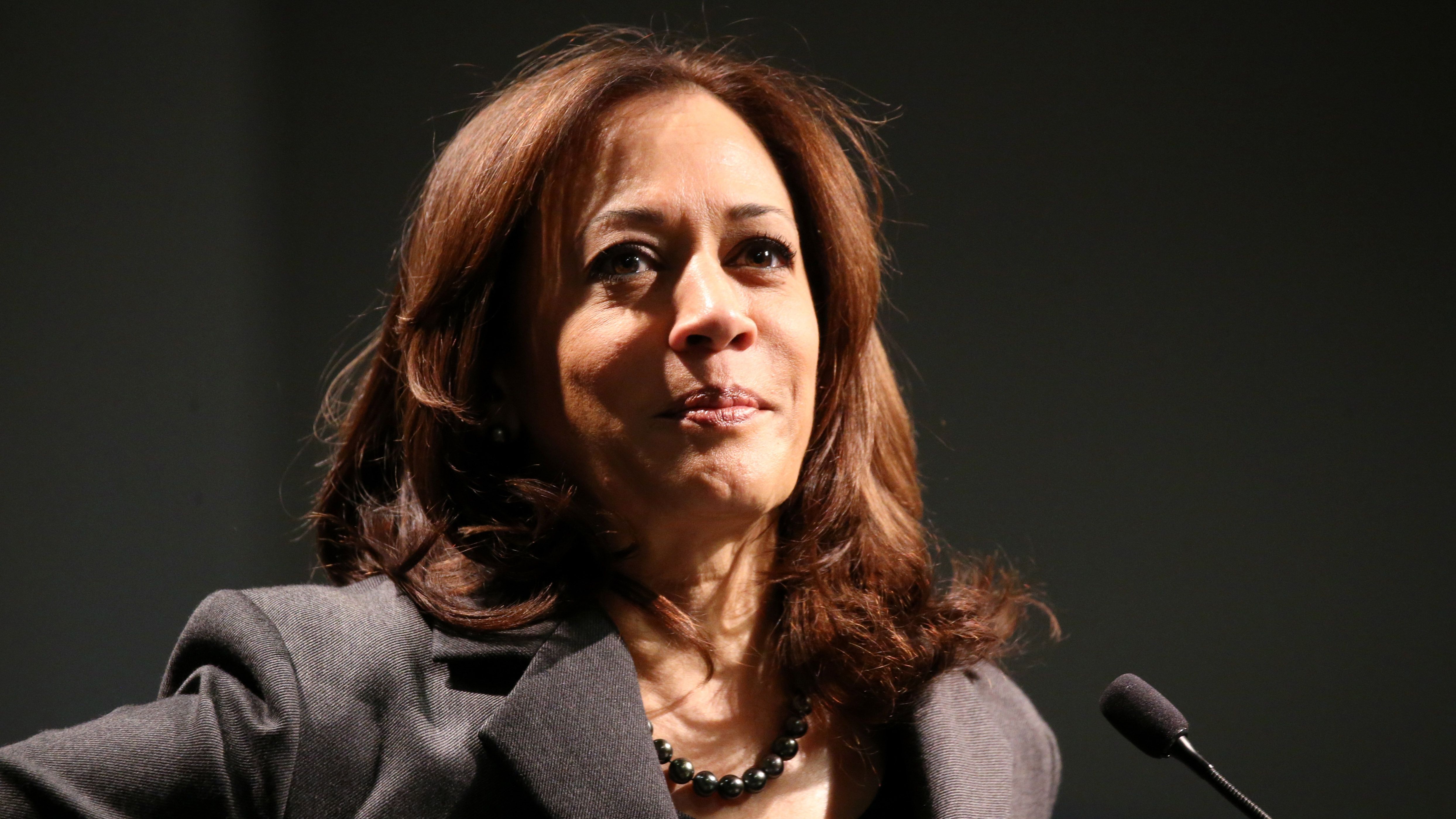It’s Time to End Equal Pay Days and Pass the Equal Rights Amendment
The passage of the ERA is a chance for our country to prove it truly values women.


Today marks Latina Equal Pay Day—the day that a Latina in the United States finally catches up to a white man’s earnings from the previous year. It’s the last Equal Pay Day of the year, meaning that Latinas must work the longest for our contributions to be valued the same as everyone else’s. On average, Latinas in the United States earn 57 cents for every dollar that a white, non-Hispanic man makes doing the same job. We quite literally have to work twice as hard in order to be seen, heard, and recognized equally.
I discovered this at an early age growing up in Virginia. I’ve been a waitress, a school administrative assistant, a gas station attendant, and a cybersecurity expert. I’ve worked minimum wage jobs with no health care, and I’ve spent countless late nights calculating all the ways I could make a dollar out of 15 cents. Over the years, I learned to advocate for myself to receive the recognition and pay I knew I deserved, but I also knew that institutional change would be needed to deliver the kind of equality I was fighting for.
My mother impressed upon me the importance of uplifting those around me. She always used to say, “If you’re looking down on someone, it should be because you’re helping them up.” So when the National Organization for Women (NOW) approached me in 2013 to become a member, I knew it was time to expand my political activism from knocking on doors to working hand in hand with women who faced the same economic challenges I did. After about a year, I started my county’s first NOW chapter and went on to serve as the state chapter’s vice president. Together, we organized our community to educate and advocate for women and girls. We brought issues like paid family leave, equal pay for equal work, and access to reproductive health care to the forefront of our Commonwealth’s conversations.
Our nation was well on its way to electing our first-ever woman president, who would bring her lived experiences to the table to fight for equality. But just three years later, everything changed. When Donald Trump was elected in 2016, I was mad as hell. I knew that a Trump administration would only further set women—especially Black and brown women—back. I refused to stand by and let that happen. After mobilizing Virginia women to join the Women’s March on Washington, I came home, grabbed my clipboard and sneakers, and filed to run for office for the very first time.
In 2017, I was elected to the Virginia House of Delegates in a blue wave that brought a record number of women to the chamber. I was proud to make history as the first Afro-Latina to serve in Virginia’s General Assembly. When we all got to Richmond, we wasted no time. I helped lead the effort that made Virginia the critical 38th state to ratify the Equal Rights Amendment (ERA) in January 2020. Virginia’s ratification cleared a pathway for the ERA to be added to the Constitution after meeting the three-quarters threshold required by law.
Now, it’s time for our nation to put its money where its mouth is and enshrine equality into our Constitution. It’s as simple as stating, “Equality of rights under the law shall not be denied or abridged by the United States or by any state on account of sex. The Congress shall have the power to enforce, by appropriate legislation, the provisions of this article.” Ratifying the ERA would clear a pathway for equal pay legislation and guarantee legal protections for women in the workplace across the country. It would also ensure that no individual will ever have to work an extra day—or 294—to earn what their white, male colleagues have earned for the same task. And ultimately, it would signal to ourselves, and the rest of the world, that America truly values the contributions of women.
As Virginia and 37 other states have demonstrated, we have the tools to deliver on our nation’s promise to continue our fight for a more perfect union. It’s time for America to pay women what we’re worth and show every little girl that her work and her contributions are just as valuable as everyone else’s. Let’s make this Latina Equal Pay Day the last by passing the ERA now.
Get exclusive access to fashion and beauty trends, hot-off-the-press celebrity news, and more.
RELATED STORY


A lifelong Virginian, Delegate Hala Ayala made history as the first Afro-Latina elected to Virginia's General Assembly in 2017. Hala is the daughter of a Salvadorian and North African immigrant father and an Irish and Lebanese mother. She has worked as a cybersecurity specialist and has also been a women’s rights activist for over a decade. Currently, Hala represents Virginia's 51st state House district and is the Democratic nominee for Lieutenant Governor in Virginia.
